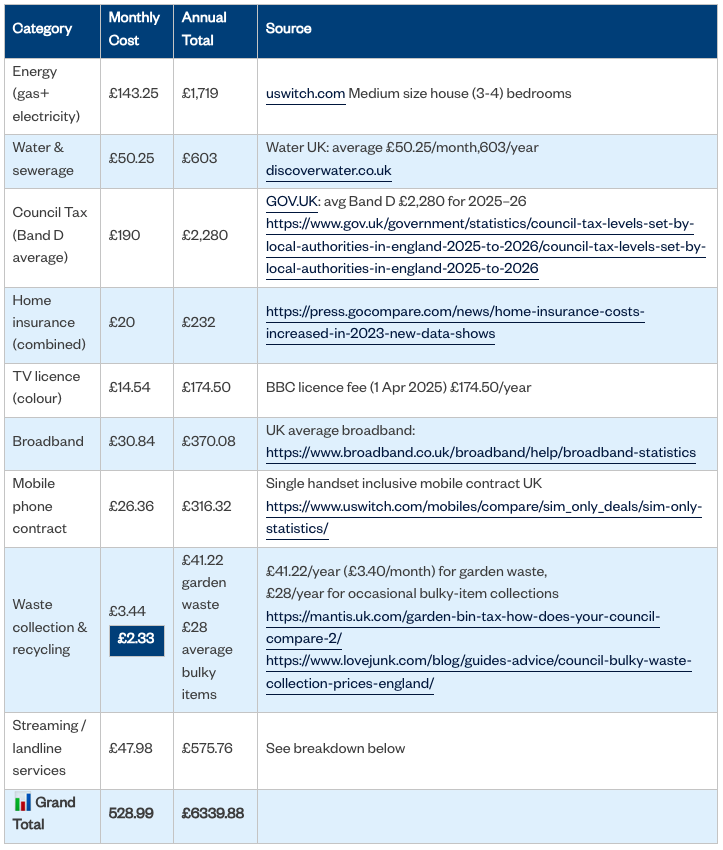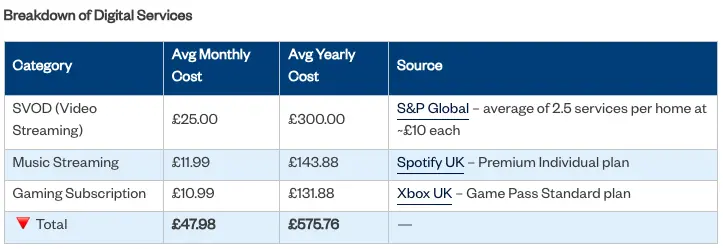A new report, Art of the possible, from Policy in Practice shows how data driven innovations can rapidly improve social tariff access now
Eight million low income households are missing out on £2.7 billion worth of vital support with their water, energy and broadband bills, despite existing data sharing tools that could automate access.
A new report from Policy in Practice, published today as part of a Citizens Advice led-partnership with IPPR and abrdn Financial Fairness Trust looking at social tariffs, reveals how pioneering utilities are already using data to increase social tariff take up. It sets out a clear roadmap to scale these proven solutions nationwide.
With water bills set to rise by an average of 26%, and up to 47% in some cases, by April 2025, urgent action is needed to ensure struggling families receive the support they are entitled to. The Art of the possible report highlights that the data infrastructure and legal gateways required to expand social tariffs are already in place. It calls for a national, automatically enrolled water social tariff by April 2026, alongside immediate steps to improve access today.
Findings: Data led solutions are already working
The report profiles four leading utilities that are successfully using Auto Enrol, Apply Once, and targeted communications to remove the barriers that prevent eligible customers from accessing social tariffs.
Key findings include:
- Auto Enrol, Apply Once, and targeted communications outperform traditional mass marketing campaigns in boosting social tariff take up. Auto Enrol, which automatically applies discounts using existing data, has been the most impactful, delivering Warm Home Discount energy support to 92% of eligible households in 2023-24.
- These approaches work best together. Auto Enrol is highly effective but relies on DWP benefits data, meaning it misses millions of low income households outside the benefit system. Apply Once and targeted communications help fill these gaps by simplifying applications and increasing take up of passported benefits such as Universal Credit and Pension Credit.
- Automation is possible, even for complex schemes. The case studies from South West Water, Anglian Water, Thames Water and British Gas Energy Trust, demonstrate that social tariffs can be automated effectively when designed to use readily available data.
Recommendations: Urgent action needed today
The report calls for a national water social tariff with automatic enrolment by April 2026 and outlines five key steps to achieve this:
Three actions that should happen today:
- All water, energy, and broadband companies should implement Apply Once using GOV.UK-endorsed benefits calculators to simplify applications
- Water companies should pilot Auto Enrol for customers in arrears to ensure those most in need receive support automatically
- Targeted take up campaigns should be launched to increase awareness of water and broadband social tariffs and boost uptake of key passported benefits
Two actions that should happen by April 2026:
- A national, automatically enrolled water social tariff should be implemented to ensure all eligible households receive support without needing to apply
- Gaps in existing schemes should be reviewed and addressed, including WaterSure, the Warm Home Discount, and broadband social tariffs, to ensure they work effectively together.
Time to act
Deven Ghelani, Director and Founder, Policy in Practice, said:
“The ‘Art of the possible’ highlights how leading utility companies are showing the benefits of data sharing to support auto enrolment and offering streamlined assessments to fast track people to lower bills. The government can take action today to scale these and other initiatives to make straightforward access to social tariffs and bill support the expected response from utility companies to customers facing affordability issues.”
Fabian Chessell, Central Government Lead, Policy in Practice, said:
“Leading utility companies are showing the benefits of data sharing to support auto enrolment and streamlined assessments. The government can take action today that makes straightforward access to social tariffs and bill support the core and expected response from utility companies to customers facing affordability issues.
“The data and legal gateways already exist to make social tariffs far more accessible. Our research shows that automation is not just possible; it’s already happening. A national water social tariff with automatic enrolment could transform support for low income households, ensuring millions of families receive the help they need at a time of rising costs.”
Dame Clare Moriarty, Chief Executive of Citizens Advice said:
“After years of cost of living pressures, households across the country are about to feel the extra shock of rising essential bills. But for those on the lowest incomes, these unavoidable costs are already eating away at their finances, leaving their budgets stretched beyond breaking point.
“Social tariffs could be an effective safety net and put money back in people’s pockets, but the government and providers must work together to make sure nobody struggling to make ends meet misses out.
“We want to see people eligible for bill support automatically enrolled to receive it. This change can’t come soon enough.”
Professor Ashwin Kumar, Director of Research and Policy at IPPR, said:
“Essential bills are leaving lowest earners with little room to breathe and causing huge anxieties. Well designed social tariffs and bill support across water, energy, broadband and insurance markets could save households hundreds of pounds a year and provide a vital lifeline to some of the most vulnerable people across the country.”
The full report, Art of the possible, is available at https://policyinpractice.co.uk/wp-content/uploads/2025/03/Report_The-art-of-the-possible_31March25.pdf
— Ends —
For media enquiries, please contact Deven Ghelani, Director and Founder, Policy in Practice:
Email: deven@policyinpractice.co.uk
WhatsApp or call: +44 (0) 7863 560 677
Notes to editors
Case study: South West Water and its Water Poverty Tool
The problem: South West Water (SWW) aims to eradicate water poverty in the South West. SWW has to be efficient given the already high costs of serving a sparse coastal population. Its offer includes efficiency measures, smart meters, debt support and a 15-85% off WaterCare tariff. Like all water companies, awareness of support was low. Brett Conibere, Head of Customer Insight, Support Services and Metering said: “We cannot wait for people to come to us”.
What they did: SWW partnered with CACI, an analytics company, to build a high resolution view of estimated water affordability down to groups as small as 12 households. SWW segmented customers, offering efficiency measures and smart meters where that was enough to bring them out of water poverty, and providing additional support like their WaterCare tariff where it was needed.
Behind the scenes: Technically, SWW and CACI combined several data sets, including matching SWW’s billing data and CACI’s Ocean data set (which draws on Electoral Roll, research surveys, open data, government data and other sources) at postcode level, along with other data sets like OBR’s income forecasts, to estimate water poverty at household level. To enrol customers onto social tariffs, benefit receipt was checked with DWP through an API. Legally, CACI’s data is aggregated facing fewer data governance hurdles. DWP’s API relies on the Digital Economy Act Section 38 to assist people in water poverty.
Impact on customers: By the end of 2024, SWW has helped over 1,000 customers with water efficiency measures and over 2,000 with smart meters, on top of the 26,000 customers enrolled onto WaterCare. And this is only the beginning: by 2030, SWW plans to have supported 1 in 10 customers with water efficiency measures.
Impact on the utility: SWW found customers more willing to engage in other support when coupled with financial support. Despite the cost of living crisis, SWW’s commitment to aiding and supporting customers struggling with debt has decreased its doubtful debt charge by 45% from £16 million in 2012-13 to £8 million in 2023-24.
Case study: Anglian Water and Apply Once
The problem: Anglian Water introduced LITE and Extra LITE tariffs to support customers with low disposable incomes who were struggling to pay their water bills, but many eligible customers were not accessing the tariff.
What they did: Anglian Water integrated its processes with the GOV.UK endorsed the Better Off Calculator allowing their customers to sign up to the right social tariff with a couple of clicks, rather than having to start all over again on the Anglian Water website and complete the additional paperwork required for the old process.
Behind the scenes: Technically, the Better Off Calculator calculated the customers’ eligibility and identified the correct social tariff, displaying it only to eligible customers. Anglian Water has adopted the calculator as its primary application form for social tariffs, meaning the customer’s data could seamlessly be ported through. Anglian Water verifies the customer’s benefit claim with DWP through an API. Legally, the data sharing was straightforward as users consented to the use of their data for the application.
Impact on customers: Over the last 12 months, over 60,000 customers have used the calculator to assess eligibility as part of Anglian’s sign up journey online, over the phone or via support services. Many first learn about Anglian’s social tariff through the Calculator and go on to apply, with over 2,800 doing so immediately through ‘Apply Once. ’ Already 5-10% and potentially 15-30% of applications. Others will apply later after claiming more valuable benefits like Universal Credit. This shows the benefit of having the social tariff in a benefits calculator used by over 2 million people annually. The Calculator has also helped people access other benefits, with nearly 12,000 customers helped to access £9.4 million of additional support.
Impact on the utility: Anglian Water saved money, reducing manual processing costs and improving customer satisfaction.
Case study: Thames Water and Auto Enrol
The problem: Thames Water (TW) has enhanced its WaterHelp tariff to better support customers in need through the cost of living crisis. TW is keen to exceed the regulator’s targets for social tariff take up and to reach the customers most in need, yet faces low customer awareness despite extensive outreach, with many customers experiencing digital, disability and language barriers. Previous attempts to automate using DWP’s matching service were not fine grained enough, providing only yes/no responses for benefits receipt.
What they are doing: Thames Water is piloting with two London boroughs and Policy in Practice to automatically assess low income customers in water arrears for WaterHelp eligibility. TW expects to automatically enrol over 1,200 eligible customers onto WaterHelp, increasing to 2,500 in April as tariff increases take effect. This replaces traditional mass marketing efforts and a manual application journey which places the onus on the customer to be aware of the tariff and to then complete an application.
Behind the scenes: Technically, multiple benefits and administrative datasets from DWP and local authorities (LAs) were matched by Policy in Practice at the household level. The data is then analysed to calculate water poverty and assess eligibility against Thames Water’s criteria. To maintain data privacy, Policy in Practice acted as a trusted third party, matching LA data to TW’s customer records and flagging eligible customers, meaning TW never received customer data. Legally, the data sharing was possible under the Digital Economy Act section 38 and section 38 provisions for Water Poverty, with GDPR’s minimisation and proportionality achieved by adopting the trusted third party model.
Impact on customers: Over 1,200 customers are expected to be enrolled from April 2025, doubling enrolment and distributing an estimated £500,000 over a year without having to go through a 30 minute income and expenditure assessment. 600 customers were found to be in both water arrears and council tax arrears and will receive additional support by the council. The approach is planned to scale to other local authorities across the Thames Water region.
Impact on the utility: Thames Water expects to reach customers in financial hardship while saving administration costs as it scales this programme across London.
Case study: British Gas Energy Trust and debt relief
The problem: British Gas Energy Trust (the Trust) provides grants to customers with energy debt. The Trust relied on self-referrals and referrals from frontline services, services which struggled to stay abreast of various schemes’ eligibility requirements. This meant that despite the cost of living crisis, funds were often underspent. For self-referred customers, the process was disjointed as they had to use another website and re-enter their details.
What they did: The Trust integrated its eligibility assessment with the Better Off Calculator, endorsed by GOV.UK and used by advisors and the public nationwide, meaning customers are assessed for the grant as part of their advice journey. The Trust also integrated the Better Off Calculator on their website to allow customers to apply for debt relief online and to check for unclaimed benefits as part of the one process.
Behind the scenes: Technically, Policy In Practice implemented the Trust’s different eligibility requirements and assessed customers while they used the calculator. The Trust could then turn schemes on and off depending on funding availability. The Trust integrated the calculator with their website, using a ‘white labelled’ version of the calculator which transferred the applicant’s details via API to prefill their application form. Legally, the data is processed with the customer’s consent.
Impact on customers: Of over 2 million customers a year who use the Better Off Calculator, more than 80,000 customers between April and September 2024 were assessed as eligible for the Trust’s support scheme, many of whom went on to apply, of which over 5,000 applied immediately using Apply Once. Others will have applied over the phone or after they have claimed more valuable benefits like Universal Credit. Customers’ journeys were streamlined and they didn’t have to re-enter their details.
Impact on the fund: The Trust has been able to reliably disburse its funding with confidence its support is reaching the most in need. By integrating with the Better Off Calculator, the Trust has simplified the client journey by combining advice and application into one step, ensuring customers in debt have been supported to access unclaimed benefits to prevent debt build up in the future. The integrated journey has also reduced administration costs.









